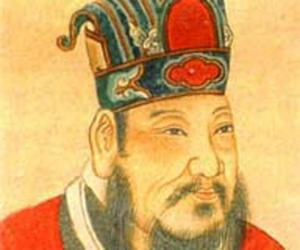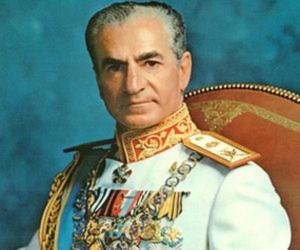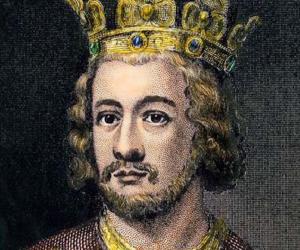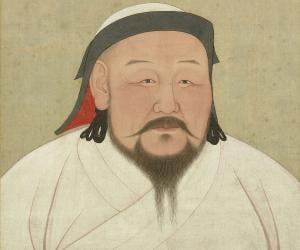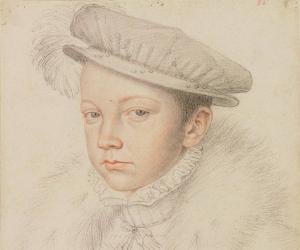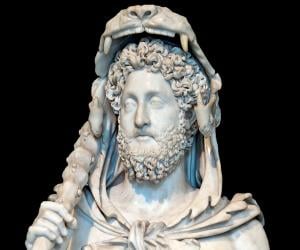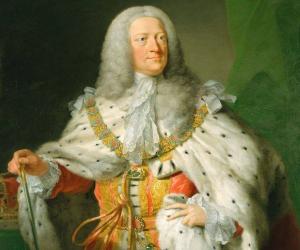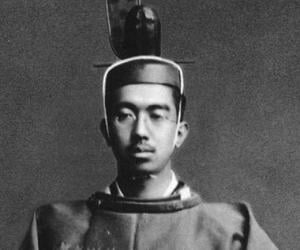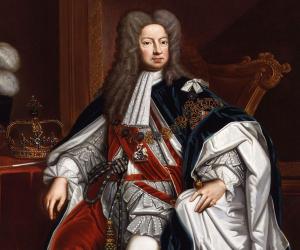Wudi is the posthumous name of Emperor Wu of Han, who was the seventh emperor of the Han dynasty of China; he ruled from 141–87 BC. His reign lasted over half a century and is one of the longest in Chinese history. A famed military campaigner, Wudi led his armies on great expeditions that resulted in the vast expansion of territories under his rule. The autocratic emperor, through his relentless campaigning, brought southern China and northern and central Vietnam under his control and established dominance over the Korean kingdom of Wiman Joseon, which had slipped out of Chinese influence. Even though he significantly expanded his empire through aggressive military campaigns, these wars depleted much of the empire’s reserves and wealth. He declared new taxes and implemented business policies to increase state income, which made him unpopular among his subjects. While his reign was marked by prosperity in its early years, the final years were filled with financial difficulties and political unrest. Wudi also introduced various religious and cultural changes into society. He promoted Confucianism as the ideological foundation of governance and was obsessed with finding the path to immortality.
Also Known As: Han Wudi, Liu Che, Xiao Wu Huangdi
Died At Age: 68
Spouse/Ex-: Consort Li Ji, Consort Wang, Consort Xing, Consort Yin, Consort Zhao, Empress Chen Jiao, Empress Wei Zifu, Lady Li
father: Emperor Jing of Han
mother: Empress Wang Zhi
siblings: Liu Sheng, Prince of Zhongshan, Princess Longlü, Princess Nangong, Princess Pingyang
children: Emperor Zhao of Han, Liu Bo, Liu Dan, Liu Hong, Liu Ju, Liu Xu, Prince Ai of Changyi, Prince Huai of Qi, Prince La of Yan, Prince Li of Guangling, Princess Shiyi, Princess Wei the Eldest, Princess Yangshi, Princess Zhuyi
Born Country: China
Emperors & Kings Chinese Men
Died on: March 29, 87 BC
place of death: Chang’an
He was born as Liu Che on June 30, 156 BC, in Chang’an, (now Xi’an, Shaanxi Province, China) to Liu Qi and his consort Wang Zhi. His grandfather was Emperor Wen of Han upon whose death Liu Qi ascended the throne as Emperor Jing of Han.
Emperor Jing died in 141 BC, and Crown Prince Liu Che ascended the throne as Emperor Wu. He was just 15 years old at that time.
Over the years he was successful in bringing southern China and northern and central Vietnam into Chinese control. He had lost control over the regions of northern and central Korea in 128 BC, which he went on to successfully re-conquer later on. Emperor Wu was not someone to take defeat lightly.
Emperor Wu was an autocratic ruler, known for his ruthlessness and cruelty. He was also obstinate and vain. He developed a fascination for horses from the Fergana valley region which was very far away from the Chinese mainland. The first expedition (104 BC) he sent to the land was a failure, but he persevered and sent a second expedition that returned with horses in 101 BC.
Emperor Wu was grief stricken by the deaths of his wife and son, and repented for his losses during his last years. He became seriously ill by 88 BC, and declared his youngest son, Liu Fuling, to be the crown prince. The emperor died on March 29, 87 BC. He was assigned the posthumous name of “Wudi” which is used for historical and religious purposes.
Emperor Wu of Han was known for his love of music and was a skilled player of the guqin, a traditional Chinese string instrument.
He was a prolific poet and wrote many poems during his reign, showcasing his appreciation for the arts.
Emperor Wu was a strong advocate for Confucianism and implemented reforms that aimed to strengthen the moral values of his empire.
He was a visionary leader who expanded the Han Empire’s territory through military conquests and diplomatic alliances, solidifying his legacy as a powerful ruler.
Emperor Wu was also known for his interest in astrology and divination, seeking guidance from these practices in making important decisions for his empire.


